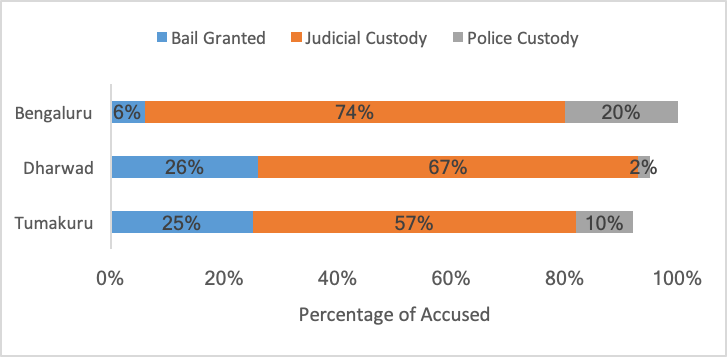Sudhir Krishnaswamy and Deekshitha Ganesan write for the National Law School of India Review, about the consistently high under-trial detention rate in India. Breaking down an empirical study by the Centre for Law and Policy Research, they focus on bail decision making at the pre-trail stage and the natural of the offence as a substantive legal factor.
Excerpt from the article:
“From the data set, we note that the nature of the offence appears to have a significant influence on a bail outcome at first production. Offences which are perceived by the court as less serious are more likely to receive bail, irrespective of whether we consider the statutory basis of the offence or its classification in Schedule – I, CrPC.
The common trend in all three districts was that bail was granted at higher rates for IPC offences when compared to SLL offences. Significant variations in the outcome on first production are visible across the three districts depending on whether the offence committed was under the IPC or an SLL. Further, bail was granted more frequently for bailable than non-bailable offences. While Tumakuru was the exception, it is important to bear in mind that only 3 bailable cases were before the courts.”

